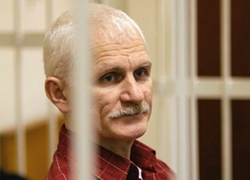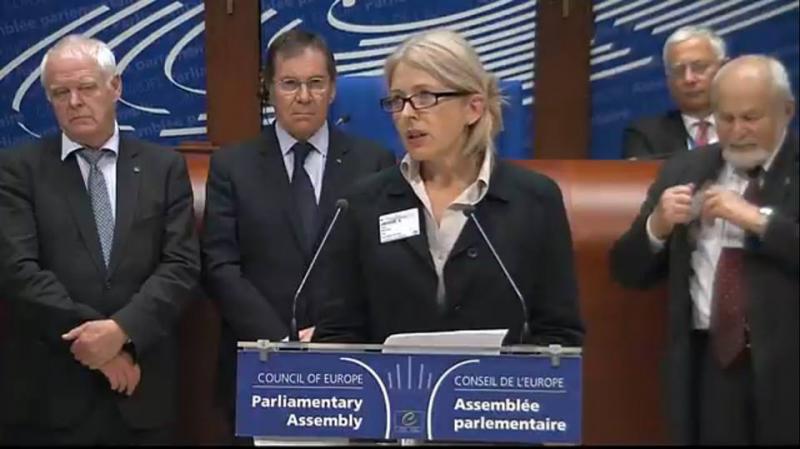Ales Byalyatski wins Vaclav Havel Human Rights Prize
13- 30.09.2013, 14:01
- 24,461

Imprisoned human rights defender Ales Byalyatski has been awarded the Vaclav Havel Human Rights Prize.
"In his daily struggle against violations of human rights, injustice, arbitrariness and authoritarianism, Ales Bialiatski [Byalyatski] has worked ceaselessly so that the citizens of Belarus may one day aspire to our European standards," Jean-Claude Mignon, president of the Council of Europe Parliamentary Assembly (PACE), said during the awards ceremony, which was held in Strasbourg on Monday, the first day of PACE's fall session.
The wife of Mr. Byalyatski, who turned 51 years of age on September 25, was present at the ceremony.
The two other candidates for the award, which was instituted by PACE earlier this year, were the Georgian Young Lawyers' Association (Georgia) and the Rights Defense Network (China).
The selection panel, comprising six independent figures and chaired by Mr. Mignon, drew up its shortlist on the basis of 27 candidatures which fulfilled the criteria for the Prize.
The Vaclav Havel Human Rights Prize, which aims to reward outstanding civil society action in the defense of human rights in Europe and beyond, is awarded by PACE in partnership with the Vaclav Havel Library and the Charta 77 Foundation, and comes with a €60,000 prize.
Last year, Mr. Byalyatski was granted the US Department of State's Human Rights Defenders Award, the Lech Walesa Award, and the Petra Kelly Prize of the Heinrich Boell Foundation.
Ales Byalyatski, chairman of a human rights organization called Vyasna (Spring) who is vice president of the International Federation for Human Rights, was arrested in Minsk on August 4, 2011.
On November 24, 2011, he was sentenced to four and a half years in prison on a charge of large-scale tax evasion. The charge stemmed from information about his bank accounts abroad, which was thoughtlessly provided by authorities in Lithuania and Poland under interstate legal assistance agreements. During his trial, Mr. Byalyatski insisted that the money transferred by various foundations to his bank accounts abroad had been intended to finance Vyasna’s activities and therefore could not be viewed as his income subject to taxation.











